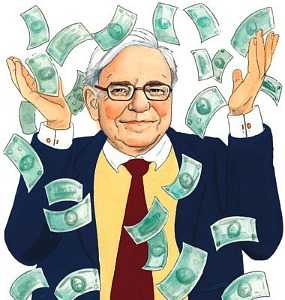Related Topics
Investing, Philadelphia Style
Land ownership once was the only practical form of savings, until banking matured in the mid-19th century. Philadelphia took an early lead in what is now called investment and still defines a certain style of it.
Personal Finance
The rules of financial health are simple, but remarkably hard to follow. Be frugal in order to save, use your savings to buy the whole market not parts of it, if this system ain't broke, don't fix it. And don't underestimate your longevity.
Old Age, Re-designed
A grumpy analysis of future trends from a member of the Grumpy Generation.
Right Angle Club 2011
As long as there is anything to say about Philadelphia, the Right Angle Club will search it out, and say it.
Unique Investment Requirements

|
| Special Investment Situations |
Let's announce the purpose of this preamble about special investment situations, right now. In the great majority of cases, the mission of investment management is simply stated: make as much money as possible, and then retire on it. But two extreme situations lead to conclusions about investment policy which differ so radically from each other, it might pay to ask at the beginning whether they somewhat apply to our own cases. One would be that mythical individual who is so rich he can realistically be indifferent to investment outcomes. At the opposite extreme is the non-profit institution which is totally dependent on a steady stream of endowment income, theoretically into perpetuity, but in any event without interruption. The non-profit's contribution to society is limited by the amount of investment income it can generate, while by contrast, the tycoon is so well off that for him, life will go on, about the same, whether he invests well or poorly, or indeed at all.
Our society recognizes that unique dependence of non-profit institutions on their investment income and confers an exemption from taxes to philanthropies. So the investment income of nonprofit companies has two unique features: it needs to be steady, and it has no concern about taxes. Taken together, these two conflicting features grow out of tensions between the rich and comfortable who support the philanthropy, and the sense of entitlement of the artists, writers, and performers, who as a group are usually paid lower wages. But not invariably. Entertainers are sometimes able to exploit their celebrity to the point where they can be the most highly paid people in the whole workforce. This paradox sometimes creates social dissonance within philanthropies, between the rich trustees of an opera company seated in the boxes let's say, and the equally rich soloists standing on the stage. The stagehands, moderately overpaid because of unions, reflect the class warfare sentiments of a century earlier; the only stakeholders actually pinched by economics are the general audience, seated in the back rows of the auditorium unless they stay home during a recession. Such organizations are uniquely well advised to have a steady income from bonds at all times, to keep the place running during recessions. Otherwise, bonds are often a poor investment.
The hostilities and discontents of various components of the opera family are not the usual sources of main difficulty for the investment manager of such philanthropy. His grief arises from the need to "meet his payroll", week after week. The stock market may rise and fall, the popularity of the performances may ebb and flow, the stagehands may go on strike. But the business manager must meet the payroll in good times and bad. Consequently, the business manager has an incentive to invest in bonds because of the steady income they generally provide. The opera company does generate ticket income; many other philanthropies have no income at all except for investment income, much exaggerating the need for steadiness from that source.

|
| Berkshire Hathaway |
At the other end of the spectrum, some extremely wealthy persons have essentially no need for income at all, at least income derived from major sections of their assets. For such persons, the question arises, why pay income taxes if you don't need income? If the assets are large, the management burden may become large as well, and there may be very little point to this administrative effort except that the government says it must be done. Persons in this happy situation often invest in assets like Canadian forests whose income is only foreseen in the far distant future, or in Berkshire Hathaway for example which deliberately generates no income or income taxes. In the case of Maharajahs or other obscenely wealthy people, there may even be no point in accumulating extra assets, or income, or the investment managers needed to select it. Even a modestly wealthy person gets into this situation when he becomes extremely elderly or extremely sick; he can't spend any of it, so why have it?
But not so fast. A comparatively young person, well educated and earning a comfortable income, may have no need for investment income for years to come, but he will certainly need it sometime. When he can afford to retire, he eventually does so, and at that moment his investment portfolio abruptly switches from a vague nuisance into his main source of his income. His investment outlook, therefore, should switch from that of a Maharajah to that of a single-client investor with a payroll to meet. Too many advisors ignore this fairly common situation, and advise a standard average portfolio design from age 20 to age 70, from the days when the client is a clerk to the day he becomes chairman of the board, someday even to being an invalid fed with a spoon. But it's hard to see the logic of investment rigidity throughout these life changes. To modify the revenue approach is not to "play the market" or to engage in market-timing. It is to adapt your behavior to your position in life.
This flexibility particularly applies to one's tax situation, which can vary from one extreme to the other throughout life. There is no sense in paying taxes on investment income unless the money is then spent. If there is no current need for spending money, there is no sense in paying taxes on investment income. Let the investment income accumulate untaxed unless there is no other income to spend. The consequence of this simple rule is that there are significant disadvantages to buying high-dividend stocks, at the same time that certain investment advisors are recommending nothing else. It is claimed that high-dividend stocks out-perform the market, which may sometimes be true. But it is always true that if the dividends are not spent in the same tax year they are distributed, the tax on the earnings they represent would accumulate untaxed if you had bought non-dividend stock. Eventually, such accumulations are taxed when the stock is sold, but ordinarily at a significantly lower tax rate. The present apparent advantage of high dividend stock performance is mainly a result of abnormally low-interest rates, which presumably will not last indefinitely. While this situation continues, it creates relatively little new taxes for the retiree spending up his investment income; it is the young person in his earning years who should be wary of unnecessary taxes of this sort.
Originally published: Monday, April 25, 2011; most-recently modified: Sunday, July 21, 2019